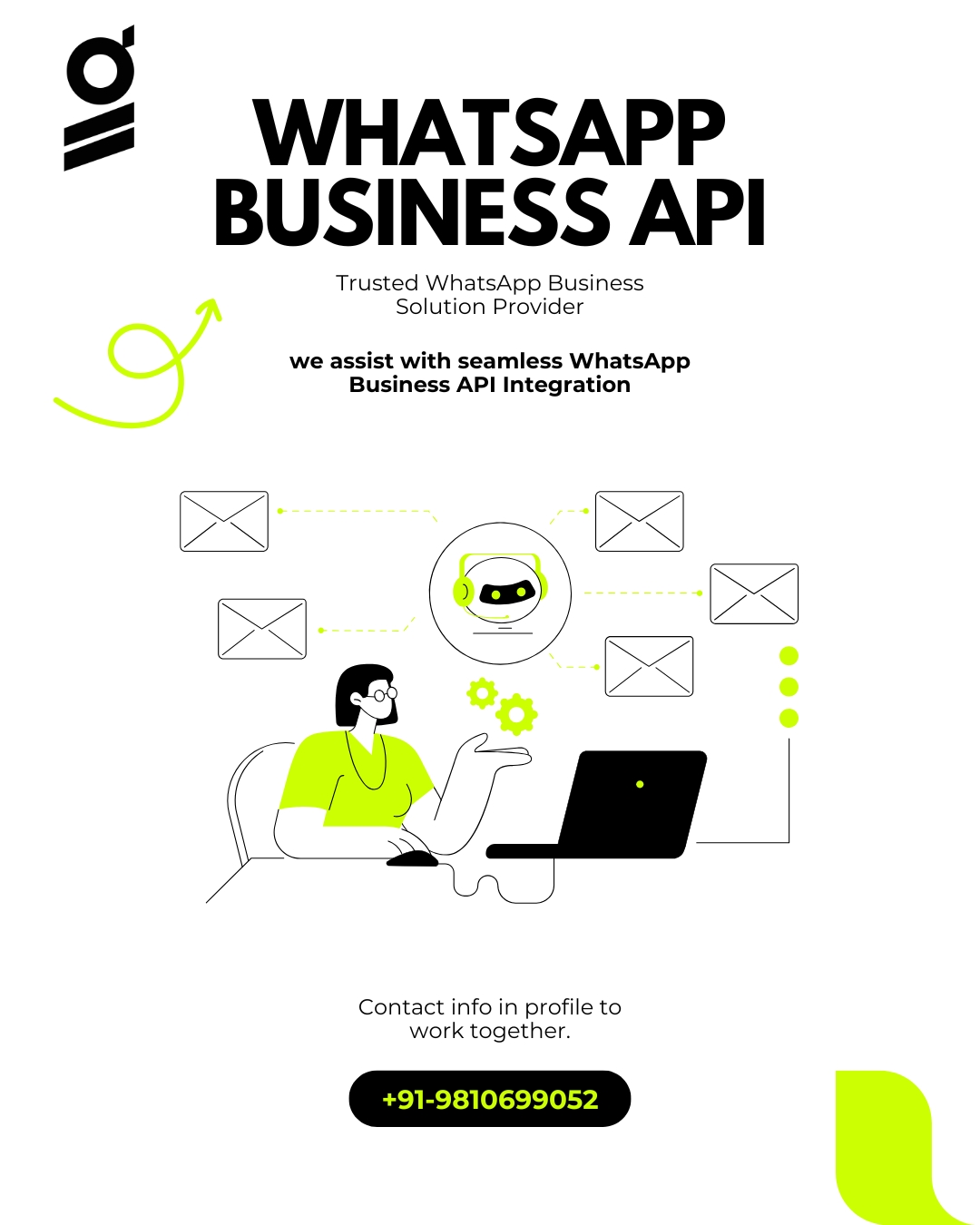In today’s digital-first marketplace, customers expect businesses to be available on the platforms they use most. With over 2 billion users worldwide, WhatsApp is one of the most popular messaging apps, making it a natural choice for brands looking to connect with audiences. While the regular WhatsApp Business App works well for small businesses, growing companies often need more advanced features. This is where the WhatsApp Business API comes in.
Designed for medium to large enterprises, the API provides scalable communication, automation, and integration capabilities that transform WhatsApp into a powerful customer engagement tool.
What is WhatsApp Business API?
The WhatsApp Business API is a communication interface that allows businesses to integrate WhatsApp with their CRM, customer support systems, or marketing platforms. Unlike the standalone WhatsApp Business App, the API doesn’t have a traditional front-end app. Instead, it connects businesses to WhatsApp through third-party providers, enabling bulk messaging, automation, and customer service at scale.
With the API, businesses can send notifications, order updates, reminders, and customer support messages, all while maintaining compliance with WhatsApp’s strict policies.
Why Businesses Use WhatsApp Business API
- Global Reach
With billions of users across 180+ countries, WhatsApp is ideal for international communication. - High Engagement Rates
WhatsApp messages have an open rate of over 90%, making them more effective than email. - Secure Communication
All conversations are end-to-end encrypted, ensuring customer trust and data security. - Two-Way Conversations
Unlike SMS campaigns that are often one-way, WhatsApp enables interactive conversations with quick replies, images, and attachments. - Automation & Integration
Through chatbots and CRM integration, businesses can offer 24/7 support and handle queries at scale.
Key Features of WhatsApp Business API
- Template Messages: Pre-approved message formats for notifications and alerts.
- Session Messaging: Free-form replies within 24 hours of a customer message.
- Rich Media Support: Send images, videos, documents, and product catalogs.
- Interactive Buttons: Add quick replies and call-to-action buttons like “Buy Now” or “Track Order.”
- Multi-Agent Access: Multiple agents can handle conversations simultaneously via integrated platforms.
- Analytics: Track delivery, read receipts, and customer engagement data.
Use Cases of WhatsApp Business API
- E-Commerce & Retail
- Share product catalogs and promotions.
- Send order confirmations and shipping updates.
- Provide personalized recommendations.
- Share product catalogs and promotions.
- Banking & Finance
- Secure OTP delivery.
- Fraud alerts and account activity updates.
- Loan application and support services.
- Secure OTP delivery.
- Travel & Hospitality
- Send booking confirmations and itineraries.
- Offer check-in links and travel updates.
- Provide 24/7 customer assistance.
- Send booking confirmations and itineraries.
- Healthcare
- Appointment reminders.
- Share lab results and health tips.
- Enable quick support for patients.
- Appointment reminders.
WhatsApp Business API vs WhatsApp Business App
| Feature | WhatsApp Business App | WhatsApp Business API |
| Best For | Small businesses | Medium & large enterprises |
| Number of Users | Single device | Multi-agent access |
| Automation | Basic quick replies | Advanced bots & workflows |
| Bulk Messaging | Limited | Large-scale campaigns |
| Integration | Not supported | Full CRM, ERP, and chatbot integration |
Challenges of WhatsApp Business API
- Approval Process: Businesses need approval from WhatsApp to use the API.
- Costs: Unlike the free Business App, the API involves costs based on the number of conversations and region.
- Strict Guidelines: WhatsApp enforces rules against spam and unsolicited promotions.
- Technical Setup: Requires integration through a WhatsApp Business Solution Provider (BSP).
Best Practices for WhatsApp Business API
- Get User Opt-In: Always secure customer consent before sending messages.
- Use Approved Templates: Follow WhatsApp’s guidelines for outbound messages.
- Keep it Conversational: Avoid one-way broadcasts; encourage engagement.
- Leverage Automation: Use chatbots for FAQs, but ensure human handover for complex queries.
- Personalize Content: Address customers by name and tailor offers based on preferences.
The Future of WhatsApp Business API
The API is constantly evolving. Features like in-app payments, advanced catalogs, and AI-powered chatbots are expanding the possibilities for businesses. As customer expectations rise, WhatsApp Business API will play a central role in omnichannel communication strategies, integrating seamlessly with email, SMS, and RCS to provide a unified customer experience.
Conclusion
The WhatsApp Business API is more than a messaging tool — it’s a comprehensive solution for customer engagement, support, and marketing at scale. For growing businesses, it bridges the gap between traditional communication and the interactive, personalized experiences customers now expect.
By adopting the API, companies can boost engagement, build trust, and increase conversions, all while leveraging the global popularity of WhatsApp.
FAQs on WhatsApp Business API
Q1: Who should use WhatsApp Business API?
Medium to large businesses that require scalable, automated, and multi-agent communication.
Q2: Is WhatsApp Business API free?
No. Pricing is based on the number of conversations and country rates, billed via a Business Solution Provider.
Q3: Can small businesses use the API?
Yes, but most small businesses find the WhatsApp Business App sufficient. The API is best for scaling operations.
Q4: How can a business get started with WhatsApp Business API?
By partnering with a WhatsApp Business Solution Provider (BSP) who helps with onboarding and integration.
Q5: Does WhatsApp Business API support chatbots?
Yes. Businesses can integrate AI chatbots to handle FAQs and provide 24/7 automated support.





